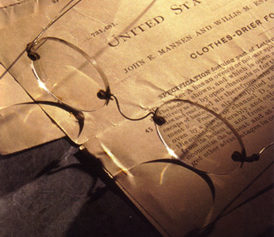Translating for Legal Evidence
The Northwest Translators and Interpreters Society (NOTIS) and Seattle court interpreters will be hosting a day of workshops and panels on October 4th (first Sunday after International Translation Day) and have been kind enough to ask me to speak on translating for legal evidence.
Evidentiary translation is an area in which translation (written) and interpretation (spoken) converge. As differs from localization, where the goal is often to start with a source text and make something new that fits the target culture, and literary translation, where creativity is almost as important as understanding, both court interpreting and translations for legal evidence require an exact and accurate reproduction of all the content, without embellishment or modification. A court interpreter cannot speak for the witness or offer their own interpretation of the facts. The Washington State courts say:
“A language interpreter shall interpret or translate the material thoroughly and precisely, adding or omitting nothing, and stating as nearly as possible what has been stated in the language of the speaker, giving consideration to variations in grammar and syntax for both languages involved. A language interpreter shall use the level of communication that best conveys the meaning of the source, and shall not interject the interpreters personal moods or attitudes.”
General Rule 11.2 Code of Conduct for Court Interpreters
Because attorneys with less experience in this field tend to assume that every translation they work with will satisfy the rules of evidence and non-specialized translators tend to assume that they should polish, clarify, and edit the text of every translation they work on, it is not uncommon for both to be unpleasantly surprised.
My talk will present best practices for working on evidentiary translations and cover a set of guidelines (recently outlined by Françoise Herrmann in the Translation Journal) and a method known as “conservation of lexemes,” which can be used to produce and evaluate translations for evidence.
The exact time of the workshop as well as the details of other presentations will be posted soon at: www.notisnet.org/events/


